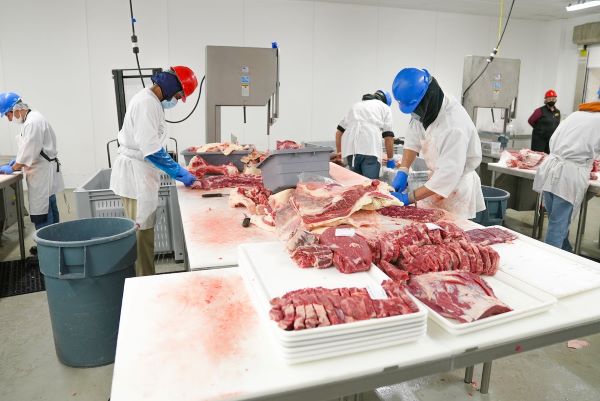The Director and Head of the Biotechnology Department at the Federal Institute of Industrial Research (FIIRO), Oshodi, Lagos, Dr. Lawal Kolawole has emphasised the urgent need to explore alternative sources of protein to meet Nigeria’s rising demand for protein-rich foods.
Kolawole made this call on Thursday in Lagos at the 11th Regional Food Science and Technology Summit, organised by the Nigerian Institute of Food Science and Technology (NIFST).
He highlighted the environmental and sustainability challenges posed by traditional livestock farming, which he said contributes significantly to greenhouse gas emissions.
“With the global population projected to exceed 9.7 billion by 2050, we anticipate a 70 per cent increase in food demand,” he said.
Kolawole pointed to biotechnology as a critical tool in developing sustainable, alternative protein sources. These include plant-based proteins, microbial proteins, insect proteins, and lab-grown (cultivated) meat.
He explained that biotechnology involves using living systems and biological processes to develop or improve food products and enhance nutritional value.
The director noted that FIIRO has developed various technologies aimed at improving the protein content of local foods.
“We have developed a process technology for mushroom cultivation — a protein-rich food that serves as an excellent meat alternative,” he said.
Kolawole also mentioned that FIIRO had engineered starter cultures for common Nigerian staples like ogi (fermented cereal pudding) and garri (cassava flakes) to boost their protein content.
“We’ve engineered yeast microorganisms to enhance the protein level of ogi and developed a similar process for garri,” he added.
He cited other innovative products, including single-cell proteins and yoghurt cultures, as promising protein sources. Single-cell protein, for instance, contains between 38 to 70 per cent protein — surpassing that of conventional meat.
“FIIRO has also developed starter cultures for yoghurt using safe, live organisms that promote gut health. You simply add them to milk, and you get probiotic yoghurt,” Kolawole explained.
He further revealed that FIIRO is collaborating with industries to develop industrial enzymes, which are vital for food processing and other manufacturing applications.
“We are developing enzyme technologies that can support a wide range of industries,” he concluded.


